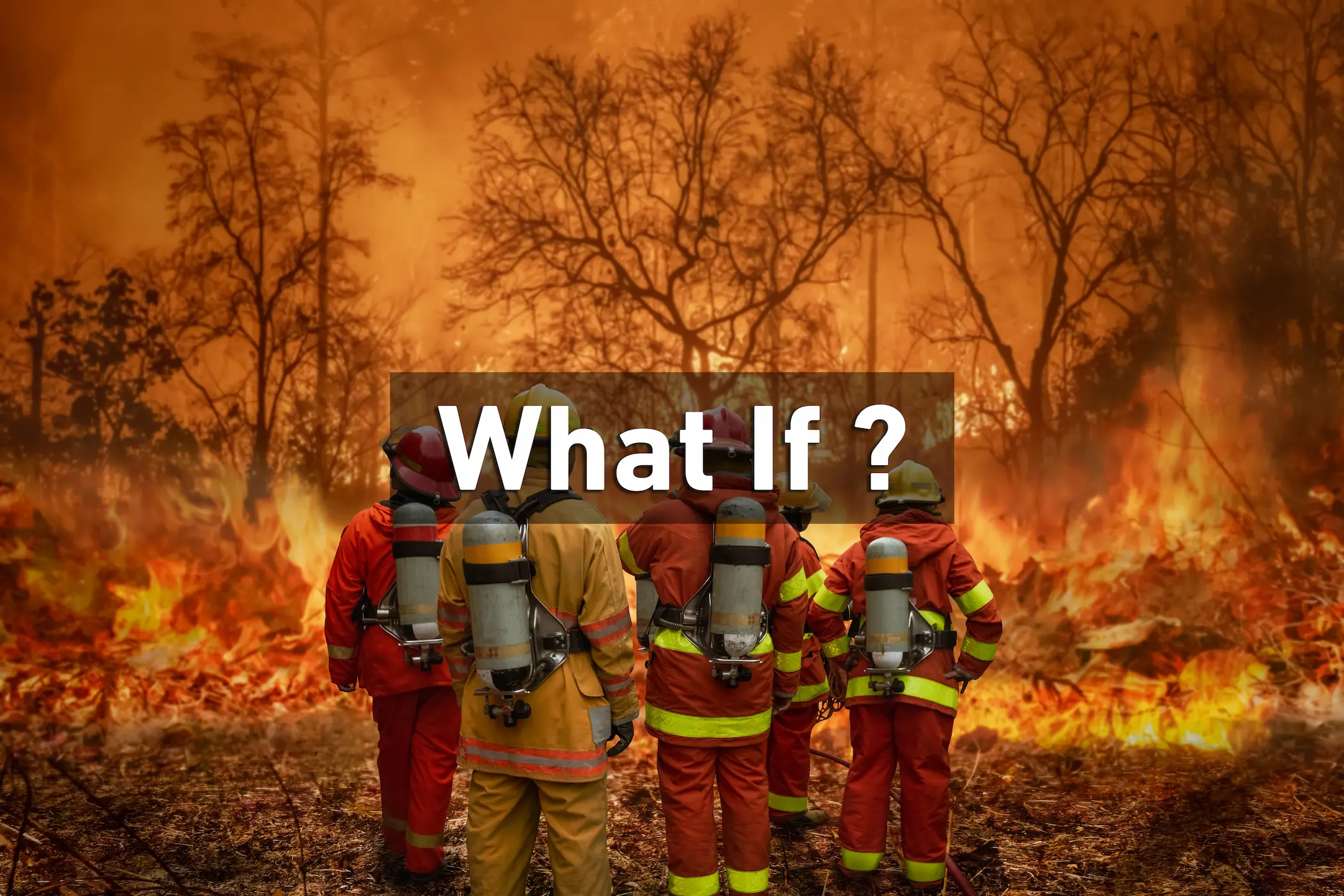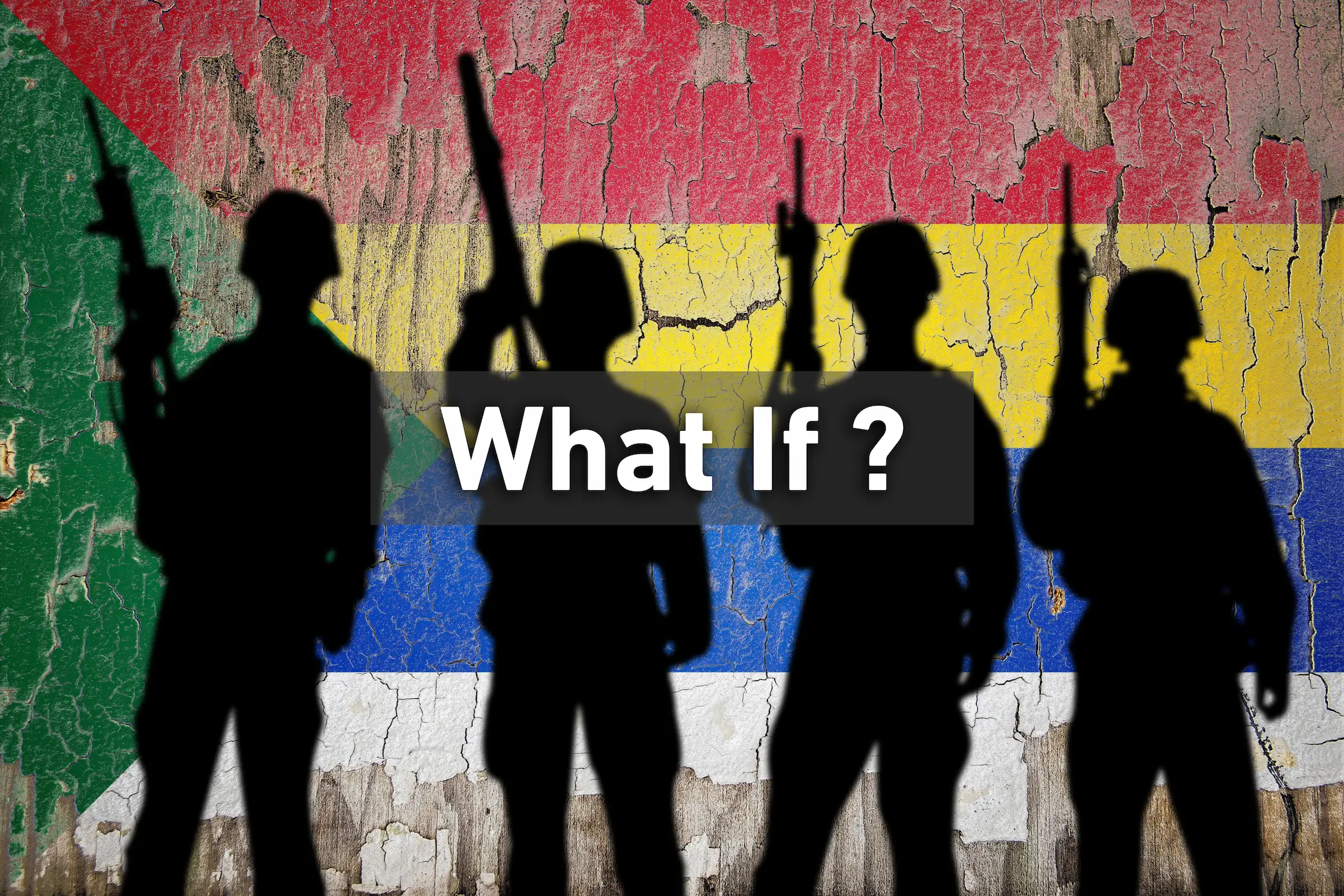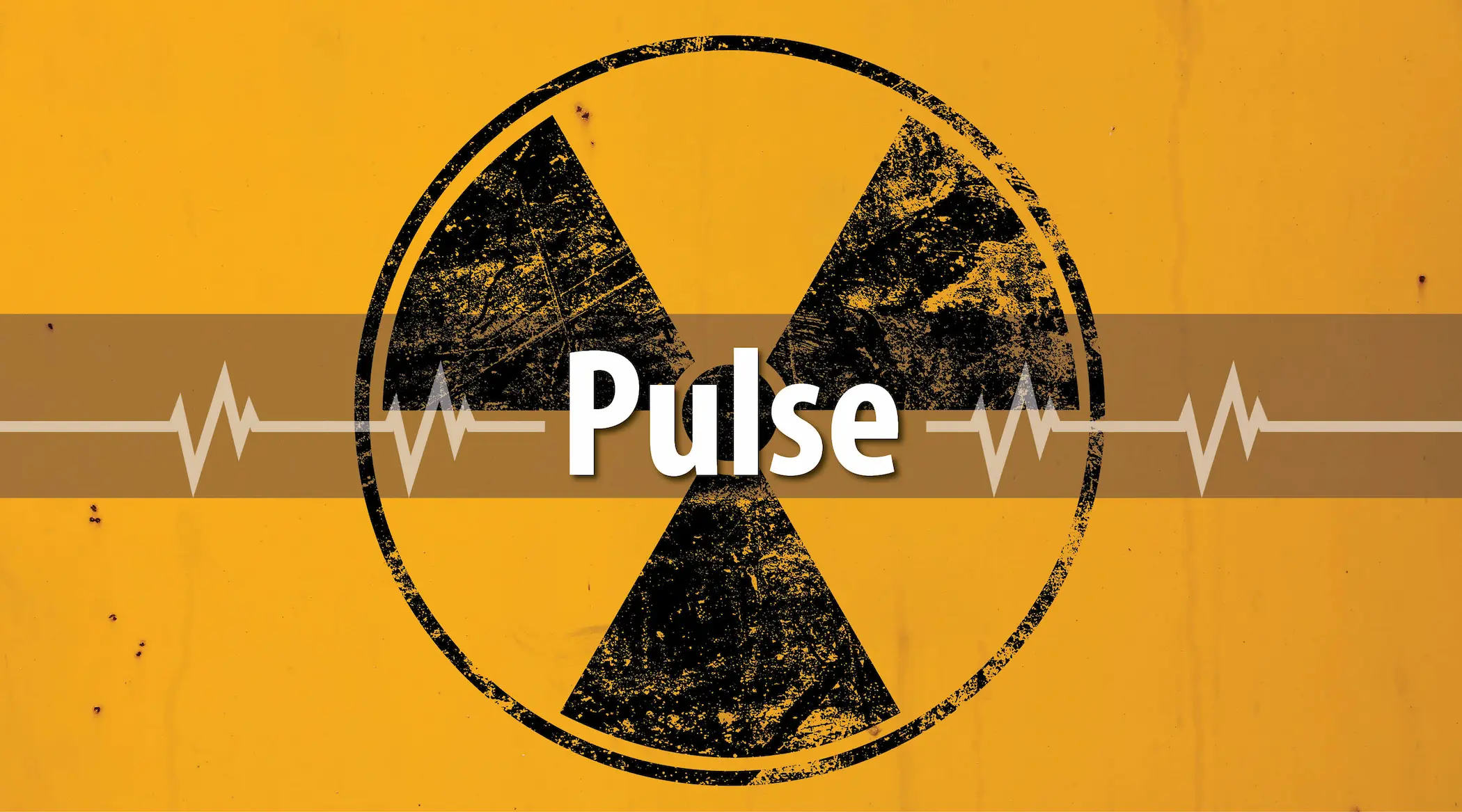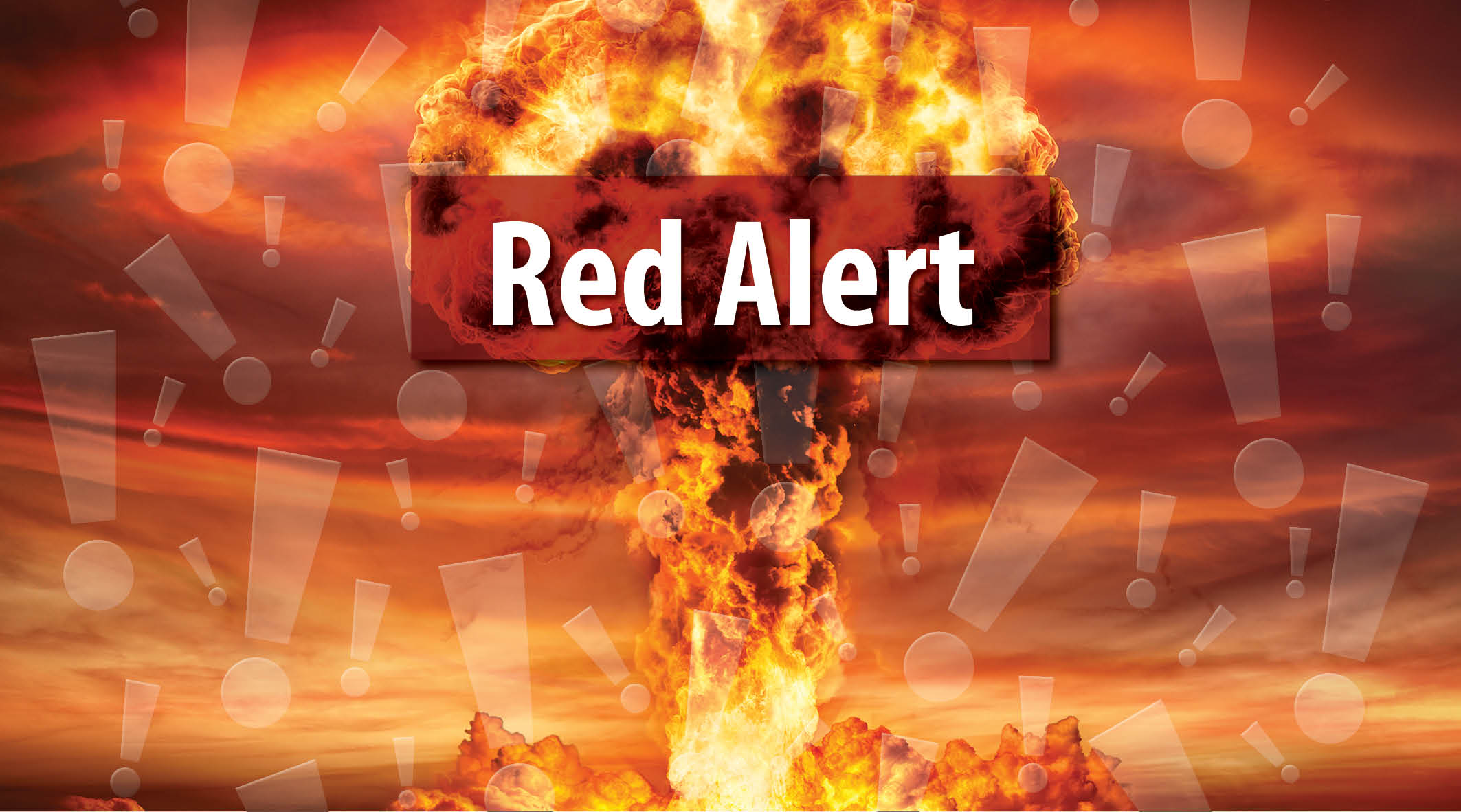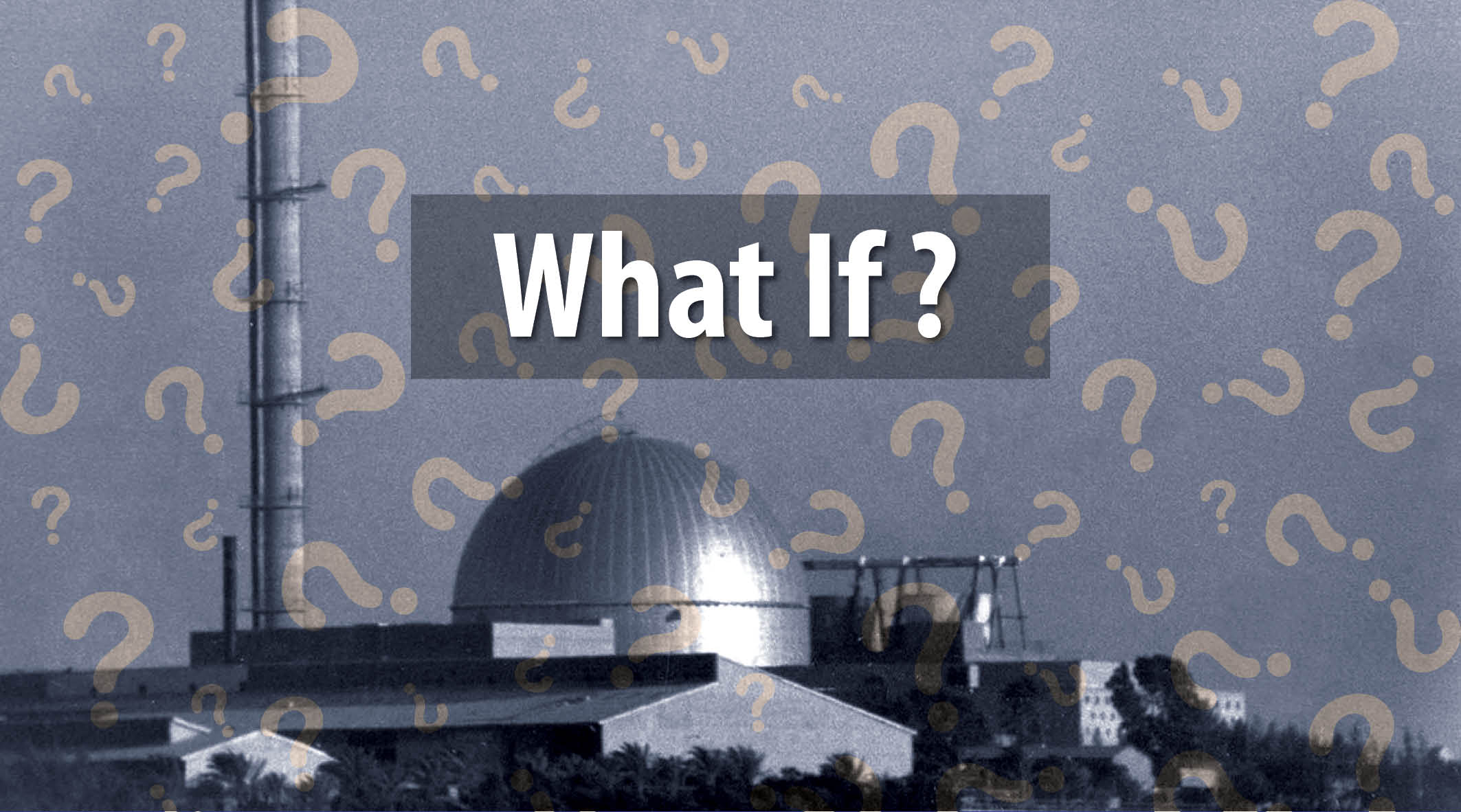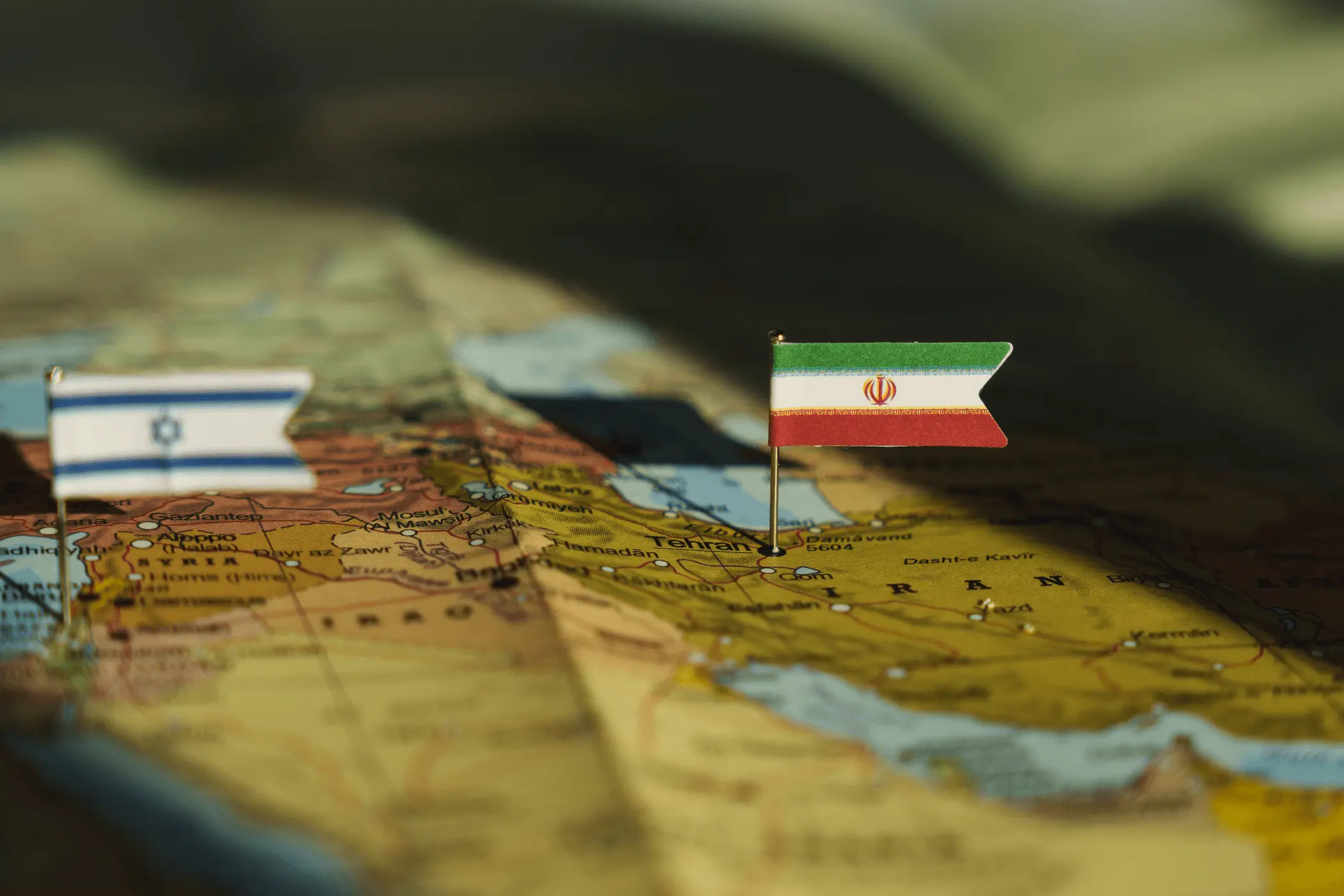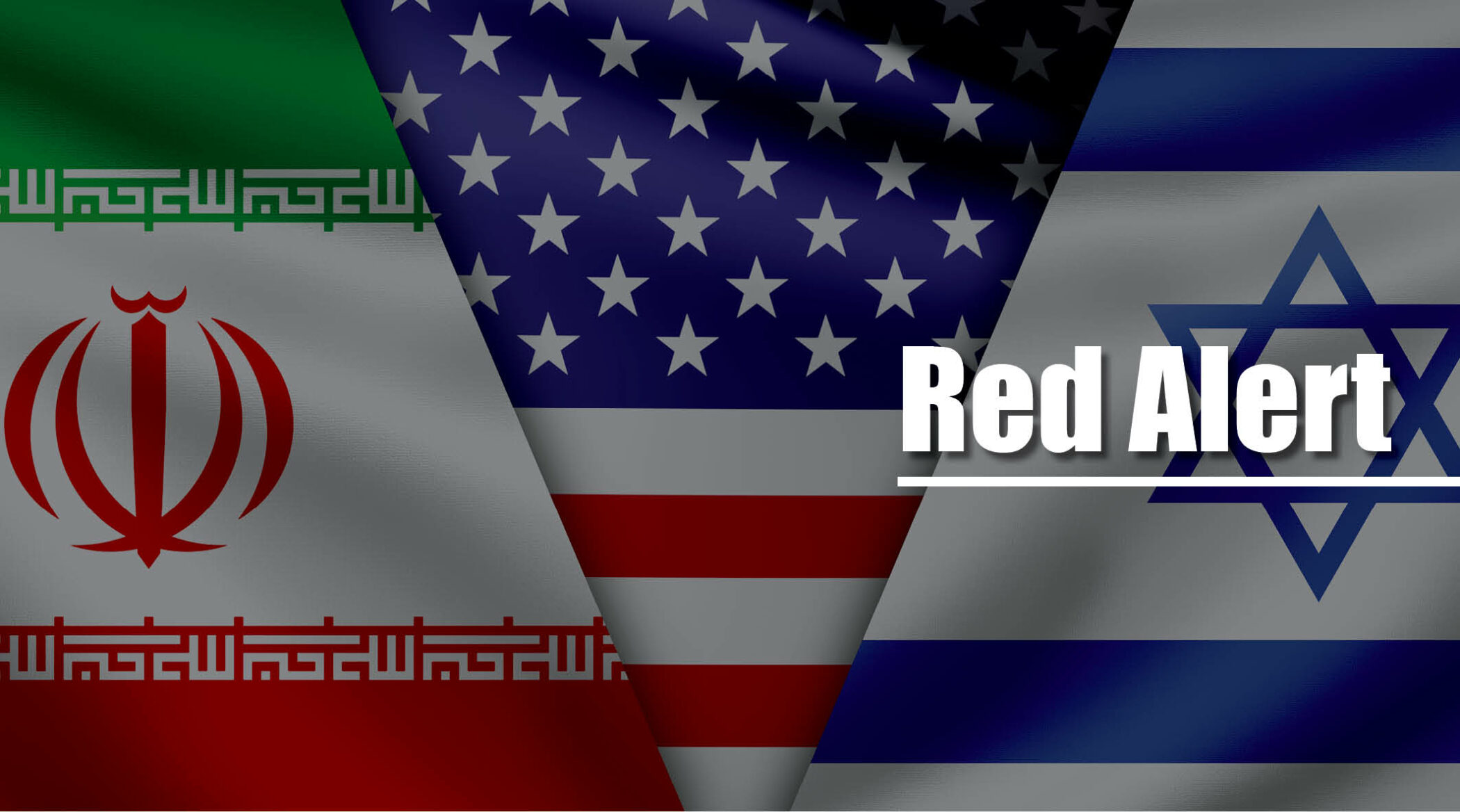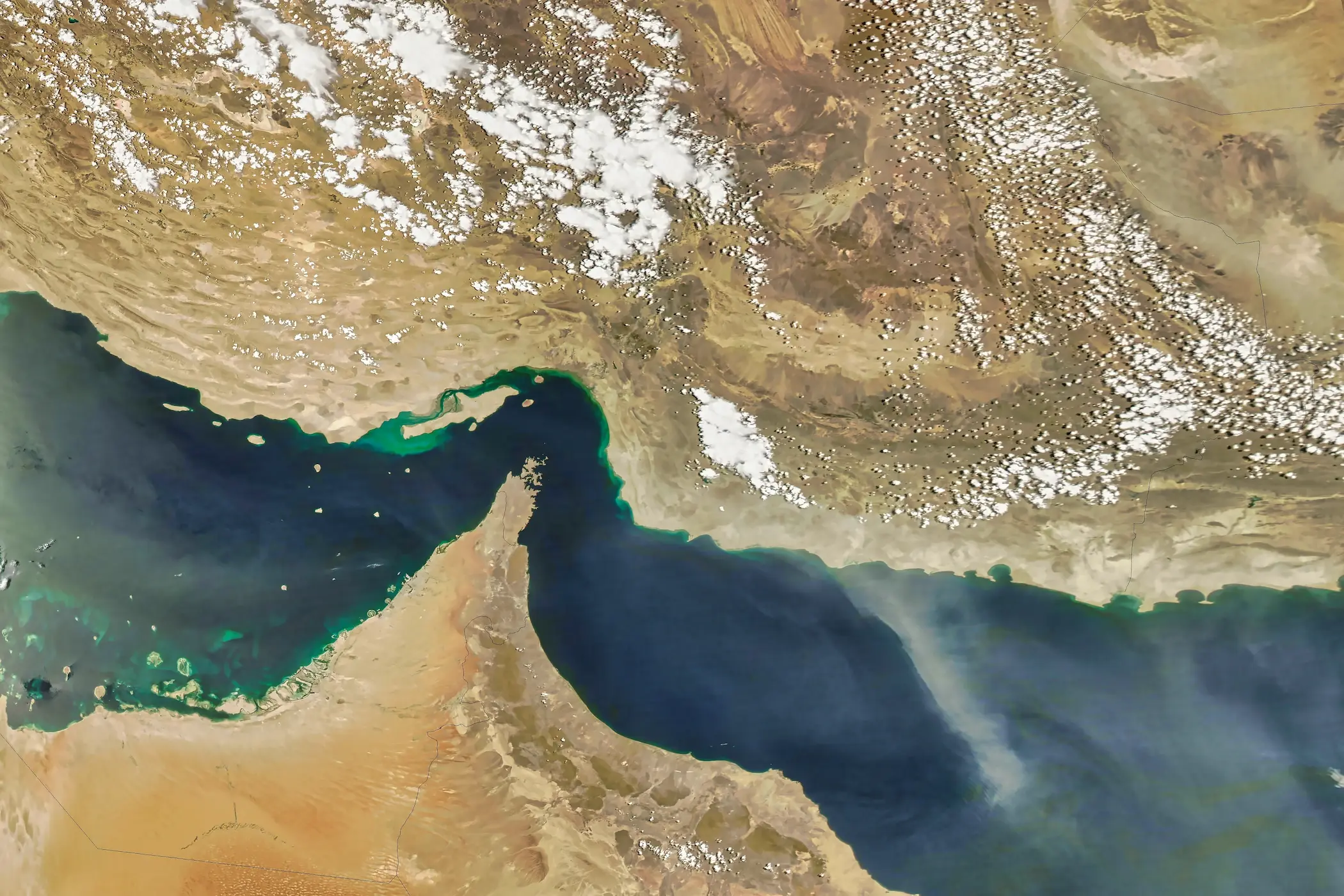30 Jul 2025
What If: The Middle East Burns Next?
In 2023 a sobering milestone was met, the highest number of wildfires in the European Union (EU) since tracking began in 2000 by the European Forest Fire Information System. More than 500,000 hectares of land were burned, an area equivalent to half the size of Cyprus. The situation worsened in 2024, with wildfire-related fatalities rising sharply to 437, compared to 263 deaths in 2023.
Research consistently points to climate change as a primary driver behind this growing crisis. Not only is it increasing the scale of land burned, but it's also intensifying individual fires, extending fire seasons beyond the traditional summer months, and triggering blazes in regions previously untouched by such disasters. As this escalating threat edges closer to the Middle East, the pressing question remains: will the region be prepared, or caught dangerously off guard?
21 Jul 2025
The Gene Line: Synthetic Superiority as Border
In a future where genome editing redefines what it means to be human, the deepest divide is no longer drawn by race, wealth, or class—but by synthetic superiority. Cities are split; assimilation outlawed. The fortunate live enhanced lives; the rest remain unmodified, unseen, and unwanted.
The Gene Line: Synthetic Superiority as Border, a short story from AHRC’s Futures Imagined series, imagines a fractured tomorrow shaped by the unchecked promises of science. Echoing the legacy of Plato’s ‘high-quality parents’ and the dark path of modern eugenics, this story doesn’t just question what the future holds, it asks who gets to belong to it.
Futures Imagined is a publication exploring emerging trends through imaginative forecasting. Rather than relying on strict methodologies, this piece invites AHRC writers to creatively narrate a possible future reality shaped by current developments.
17 Jul 2025
What If: As-Suwayda Sought Independence?
As-Suwayda has emerged as a profoundly complex arena amid the sweeping transformations reshaping Syria following the fall of the Assad regime and the formation of a new centralized transitional government. Within this volatile context, calls for self-determination from segments of the local Druze community have gained traction.
There are four critical fault lines worth exploring: the acute internal fragmentation of the Druze polity; the ideological and constitutional dissonance between local autonomy demands and the centralized architecture of the new Syrian state; the near-total economic collapse of the province; and the intensity of regional entanglement that constrains meaningful sovereignty.
15 Jul 2025
Pulse: Nuclear Risk in the Middle East
This Pulse survey, conducted in June 2025, explores perceptions of nuclear threats in the region, including the likelihood of nuclear events, levels of preparedness, and the need for collective emergency response. The findings offer insights into how geopolitical uncertainty is shaping public concerns about nuclear risks.
When asked about the likelihood of a nuclear event occurring in the Middle East within the next 10 years, the majority of respondents placed the probability between high (41%) and moderate (41%). Only a small minority believed such an event is unlikely (16%) or ruled it out entirely (3.1%). Indicating that a potential nuclear event is no longer seen as a distant possibility, but rather as a plausible risk shaped by current geopolitical dynamics and regional instability.
In response to the survey question on the most likely cause of a nuclear fallout event, participants felt that a nuclear war was the most likely cause (46%) over a nuclear reactor malfunction (38%). While historical incidents suggest that reactor malfunctions have been more frequent, respondents seem more preoccupied with the threat of nuclear war, likely influenced by ongoing geopolitical uncertainty in the wake of recent conflicts, including the now-concluded Iran-Israel War. Cyberattacks, although technically plausible, were considered less likely (13%), again perhaps due to comparison with the more immediate risks of war or malfunction. Meanwhile, terrorist attacks were seen as the least likely (4.2%) cause, reinforcing the perception that threats from rival states pose a greater nuclear risk than those from non-state actors.
When asked whether the Middle East should establish a joint nuclear emergency system, the majority of respondents (91%) supported regional cooperation, reflecting concerns over rising tensions and the limited capacity of some states to respond independently. A small minority (9%), however, opposed a fully inclusive system and favoured cooperation among select countries. Suggesting that those respondents perceive certain states as more vulnerable, or more responsible, than others, implying a belief in differentiated eligibility for participation. Ultimately, this response pattern may also highlight underlying perceptions of disparity among regional states and a reluctance to include perceived "free riders" in collective security efforts.
In response to whether the Middle East is prepared for a nuclear malfunction or cyberattack, the majority of participants (76%) expressed a clear sense of unpreparedness. With remaining respondents believing that the Middle East is somewhat (12%) or fully (12%) prepared. The strong emphasis on lack of preparedness reflects a prevailing sense of concern or fear among respondents. This sentiment is further reinforced by earlier responses, particularly the widespread support for establishing a joint nuclear emergency system, indicating that many view regional cooperation as essential to compensate for individual state limitations in crisis response.
When asked about the region’s preparedness for a potential nuclear war, an even larger share of respondents (87%) indicated that the Middle East is not equipped to handle such a scenario. Compared to the previous question on nuclear malfunctions and cyberattacks, the heightened perception of unpreparedness here reveals which category of threats weighs more heavily on respondents’ minds. This contrast suggests that nuclear war, in particular, is seen as a more pressing and dominant concern, likely due to its catastrophic scale and links to ongoing geopolitical instability in the region.
PULSE is a data-driven series that visualizes public sentiment on trending regional and global issues, curated and edited by the Al Habtoor Research Centre Early Warning Programme’s Senior Researchers Habiba Diaaeldin and Ahmed El Saeid.
The findings presented are based on data collected through social media polls and online forms distributed via email. While efforts are made to ensure a broad and diverse sample, the results reflect the views and opinions of respondents and should not be interpreted as representative of the entire population or Al Habtoor Research Centre.
10 Jul 2025
The Militarisation of European Politics
In the wake of the recent NATO summit, European leaders have committed to a landmark pledge: raising defence spending to 5% of GDP. Hailed by its backers as a historic move, the agreement reflects a sharp shift in European threat perception, driven not only by Russia’s ongoing war in Ukraine but also by the renewed pressure from Washington under the return of the Trump presidency. The "Trump effect" has reignited long-standing fears over the reliability of U.S. security guarantees, pushing Europe to take on greater defence responsibilities.
But while the pledge signals a tougher European posture, it raises pressing concerns. Can Europe realistically meet such ambitious targets without undermining the very democratic model it seeks to defend? As defence budgets grow, many fear this could come at the cost of welfare, social cohesion, and democratic checks, exposing the continent to a deeper risk: the creeping militarisation of European politics and the erosion of its democratic dividend.
8 Jul 2025
Crossroads: The Battle for the Soul of the Democratic Party
Having lost the presidential election and both chambers of Congress, it should have been expected that the Democratic Party would reflect on why voters rejected the party’s policies, platform, and candidates, and rally to face a second and far more empowered Trump administration that is aggressively dismantling the core of the Democratic Party’s achievements.
Instead, Democrats seem to have lost themselves, mired in an internal struggle over the party’s identity and future direction and unable to agree on what it truly means to be a Democrat in the Trump era.
These rifts reflect the fundamentally contrasting visions of what the party should stand for: incrementalism versus systemic change, compromise versus confrontation, electability versus principle. Without a unifying narrative or leadership capable of bridging these divides, the Democrats risk remaining paralyzed at pivotal moment in American history.
1 Jul 2025
What If: The UN Runs Out of Money?
Since its establishment in 1945, the United Nations (U.N.) has played a central role in solidifying international cooperation and promoting global peace and security. However, the U.N.’s ability to fulfil its duties depends on financial contributions from member states. As an entity, the U.N. has several budgets, including the regular budget (covers political missions, the General Assembly workings, Security Council, human rights, and legal affairs), peacekeeping budget (covers the U.N. peacekeeping missions in areas of conflicts), and voluntary budgets (covers the activities of the UNHCR, WHO, WFP and other similar agencies). As advertised by the U.N., the organization is facing a huge financial deficit that can jeopardize its global role, thereby affecting global security.
Moreover, the U.N.’s financial deficit could have several implications, including worsening humanitarian crises, allowing regional organisations to fill the gap left by the U.N., and jeopardising the global order it has sustained following the end of the Cold War.
22 Jun 2025
Red Alert: Will the US Use a Tactical Nuclear Bomb Against Iran?
On June 22, U.S. President Donald Trump announced that, using its “bunker buster” bomb, the United States had launched an attack on Iran’s Fordow nuclear facility. While Trump declared the strike a success, the complete destruction of the facility remains unconfirmed. This raises a critical question: will Trump consider using a tactical nuclear weapon to ensure its elimination?
Tactical nuclear weapons, unlike strategic ones, are smaller in yield and designed for targeted use on the battlefield rather than for widespread destruction. Though less devastating in scale, their use would carry serious regional and global repercussions.
22 Jun 2025
What If: Iran Attacked the Dimona Reactor?
Amid the intensifying confrontation between Iran and Israel throughout 2025, the prospect of a direct strike against Israel’s Dimona nuclear facility has moved from a remote possibility to a plausible escalation scenario. As military operations increasingly target strategic infrastructure on both sides, the regional system faces the risk of a threshold breach—one that could trigger not only military and political consequences but also a multidimensional crisis involving radioactive contamination, mass displacement, and economic collapse across multiple states.
While Israel would undoubtedly bear the immediate brunt—facing mass civilian evacuations, irreversible environmental degradation in the Negev, and the paralysis of its agricultural and tourism sectors—the ripple effects would extend far beyond its borders.
Jordan’s border regions and agricultural zones in the Jordan Valley could face contamination and humanitarian strain, potentially requiring the evacuation of tens of thousands of people. Egypt’s Sinai Peninsula and northern Suez region could suffer fallout exposure, disrupting global shipping through the canal and threatening the Red Sea tourism corridor. Saudi Arabia’s northern provinces, including areas tied to its Vision 2030 megaprojects, could face both environmental and demographic disruption.
22 Jun 2025
Iran and Israel: The War That Will Redraw the Middle East
The war between Iran and Israel is arguably a war of survival for the regime in Iran. Attacking Iran seemed to be a logical step for Israel after almost destroying its arms of proxies in the region. the regime, which stands on three pillars, namely, its conventional missile arsenal, its extensive network of regional proxy forces, and its nuclear program, is facing a war of attrition that might eventually end the very survival of the regime. The fall of the regime in Iran goes beyond mere regime change, rather, it is considered a state collapse.
The collapse of the Iranian state would have dire consequences for the region. However, the possibility of the regime surviving remains a significant scenario. While the fall of Iran is widely regarded as a regional catastrophe, its continued survival, particularly with Tehran asserting itself as a regional superpower, could prove even more destabilizing for Israel and its allies. Both outcomes carry profound regional and global implications, signalling a transformation in Middle Eastern geopolitics. The pressing question is not whether change is coming, but rather: what will the new Middle East look like?
19 Jun 2025
Red Alert: Potential US Attack on Iran
On June 13, 2025, Israel launched a surprise offensive against Iran, striking nuclear facilities, missile bases, air defenses, and targeting military leaders and nuclear scientists. In response, Iran retaliated the same evening with firing over 150 ballistic missiles and 100 drones at Tel Aviv and Haifa.
Israel and Iran have continued to trade blows and there are no significant signs of a potential slowdown in the conflict between the long-time adversaries. The spectre that looms over both is that of U.S. President Donald Trump, who has gone from negotiating with Iran for a nuclear deal to pushing for its “unconditional surrender” in the span of a week. as the U.S. simultaneously repositions its military assets to potentially strike Iran.
19 Jun 2025
What If: Iran Closed the Strait of Hormuz?
The Strait of Hormuz – a narrow, indispensable artery through which nearly a fifth of the world’s oil and a third of its liquefied natural gas (LNG) flows– stands on a cliff. As geopolitical tensions intensify across the Middle East, fuelled by escalating Iran-Israel tensions and the shadow of direct United States (U.S.) involvement, the once-unthinkable threat of its closure looms larger than ever with Iran’s threat to close or block the Strait. In spite of the catastrophic global implications of such an act, the volatile depths of this potential crisis will be explored, unravelling the motives that could push Iran to choke this global lifeline, exposing the monumental security and geopolitical fallout, and revealing the catastrophic economic shockwave that would consume nations far beyond the region.
